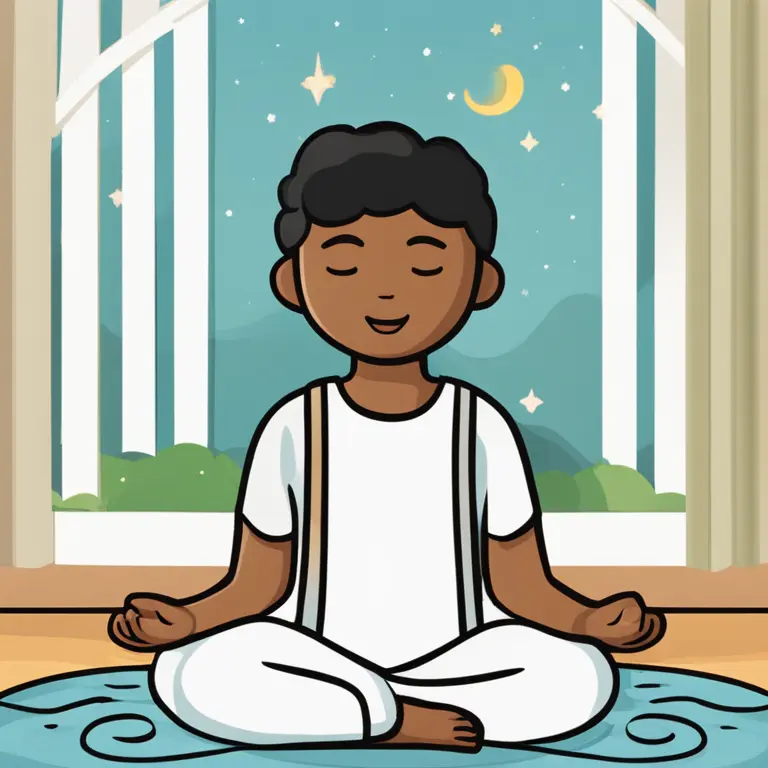
Exploring Meditations for Restful Sleep
Discover effective meditation techniques to gently ease your mind and body into a restful sleep.
article by Hina Kurosawa
The Importance of Sleep
In today's fast-paced world, the quest for a peaceful night's sleep has become increasingly important. Sleep is essential for our physical health and emotional well-being, and disruptions in our sleep patterns can have a wide range of negative consequences. With the rise of digital distractions and stress levels, finding sanctuary in the quiet of our own minds has become a valuable skill. Meditation, known for its calming effects, can be a powerful ally in improving our sleep quality. By integrating a meditative practice into your nightly routine, you can help set the stage for a deeper and more restful slumber.

Creating a Sleep-Inducing Environment
Before delving into the meditation practice itself, it's vital to create an environment conducive to relaxation and sleep. Dim the lights, reduce noise levels, and ensure your room temperature is cool and comfortable. You may opt to infuse the room with soothing scents like lavender or chamomile, which are scientifically recognized for their sleep-promoting qualities. A tidy and pleasant space not only supports relaxation but also signals to your body that it's time to wind down and prepare for rest.

Mindful Breathing to Encourage Sleep
Mindful breathing is a simple yet effective meditation technique that anyone can use to encourage sleep. Start by lying comfortably in bed and placing one hand on your chest, the other on your abdomen. Slowly inhale through your nose, allowing your abdomen to rise, then exhale gently through your mouth. With each breath, feel yourself sink deeper into your mattress. As you focus on the rhythm of your breath, your mind will begin to release the day's concerns, paving the way to a peaceful night's rest.

Guided Imagery for Tranquility
Another effective meditation method to induce sleep is guided imagery. This involves envisioning a serene setting, one that resonates with calmness for you. It could be a white sand beach, a quiet forest, or a starry night sky. Use all your senses to immerse in this peaceful environment: listen to the sounds, smell the scents, feel the textures. Guided imagery provides a mental escape and distracts from the stress that often inhibits sleep, leading to a calm and sleepy state of mind.

Progressive Muscle Relaxation for a Restful Night
Progressive muscle relaxation (PMR) is a technique that involves tensing and then relaxing different muscle groups in the body. This practice can be particularly beneficial for those who hold physical tension that prevents them from falling asleep. Starting from the top of your head and moving down to your toes, focus on each muscle group. Tense the muscles for a few seconds before releasing them. The systematic progression of muscle relaxation can significantly deepen your relaxation and enhance sleep quality.
The Role of Regular Meditation Practice
To truly reap the benefits of meditation for sleep, consistency is key. Incorporating meditation into your nightly routine signals your body and mind that it's time to slow down and prepare for sleep. Over time, as you continue to practice meditation, you'll likely find that falling asleep becomes easier and your sleep becomes more restorative. Balancing our sleep cycles with the use of meditation is becoming an increasingly popular trend and is supported by ongoing research demonstrating its effectiveness in improving sleep.
Published: 1/14/2024
Modified: 1/15/2024
More predictions
Come back here soon to learn more about yourself and your future


Easing Loneliness with Mindfulness Meditation
Explore how mindfulness meditation can provide solace and connection to alleviate the feelings of loneliness.


Easing Loneliness with Meditation
Discover how mindfulness meditation can provide solace and connection to mitigate feelings of loneliness, enhancing emotional and mental well-being.


Discovering Life with Meditation Mantras
Delve into the transformative power of meditation mantras to harmonize your mind, body, and spirit for a tranquil existence.